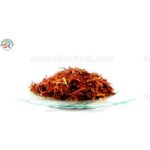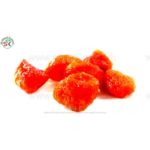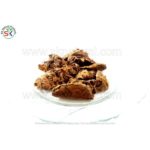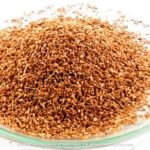Description
Harmal, Peganum harmala Linn. it belongs to family “Zygophyllaceae”. It is warm and dry in second order. Generally, people use its seeds.
Other names:
Arabic Name(s): Harmal, Aspand, Ashqaqil
Urdu Name(s): Harmal, Ispand, Harmaru, Kisankur, Harmal, Ispandan, Spanda
English Name(s): Syrian Rue
Recommended dosage:
2 to 4 g.
Actions:
Purges out excess malhumours, also a useful diuretic, expectorant, antiflatulent (for intestines), anthelmintic. Effective against cold malhumoural (atrabilious) affections e.g. paralysis, sciatica and related nervous disorders.
Medicinal uses:
Harmal seeds at sknatural have a wide range of traditional medicinal uses. Primarily, people use these seeds in aphrodisiac preparations. However, their benefits extend to respiratory issues like asthma and cough, where they help expel excess phlegm.
In neurological conditions like paralysis, insanity, amnesia, sciatica, colic, and jaundice, people believe these seeds to impart heat (functional warmth) to affected organs, potentially alleviating symptoms. For hearing problems, they heat seeds with olive oil, and the warm oil is then dripped into the ear.
For dental and wound care, these seeds offer a unique solution. Carious teeth and wounds can be fumigated with the smoke from burning seeds. Powdered seeds also act as an effective anthelmintic (expelling tapeworms) and can treat intermittent and remittent fevers.
A watery infusion made from the seeds is another treatment option for fevers. Interestingly, people also use it to induce or increase menstrual flow in women experiencing amenorrhea (absence of menstruation). Additionally, the seeds can provide relief from indigestion.
Moving beyond the seed, people consider the leaves beneficial for rheumatism, both externally applied and taken internally. Physicians believe the juice of the entire plant to possess infection-fighting properties. It’s sometimes sprinkled around houses and rooms where newborns are present. Furthermore, the smoke produced by burning harmal seeds is said to purify the air, with its antiseptic properties potentially offering relief from palsy and lumbago.
It’s important to note that harmal is a plant native to desert areas of the subcontinent. While these traditional uses exist, it’s crucial to consult with a healthcare professional before using these seeds or any part of the plant for medicinal purposes.






Reviews
There are no reviews yet.